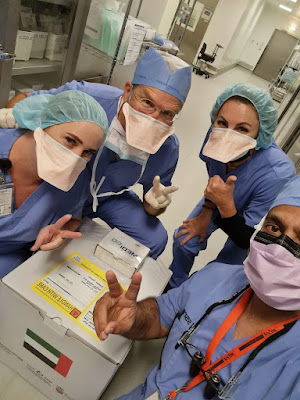Democratic institution are under threat in many parts of the world, involving elections, insurrections, and the courts. Israel is no exception these days. Yesterday's Jerusalem Post featured several stories about expressions of concern from friends of Israel, including an open letter from economists:
Biden calls for Israeli judicial reform consensus in first comment. US Secretary of State Blinken made a similar comment during his visit to Israel a few weeks ago. By TOVAH LAZAROFF, FEBRUARY 12, 2023
Seven Israeli Nobel laureates warn against judicial overhaul. In their letter, the Nobel Prize winners said that scientific excellence can only thrive in democratic nations with full freedom. By TOVAH LAZAROFF Published: FEBRUARY 12, 2023
56 US economists sign letter opposing Israeli judicial reform By JERUSALEM POST STAFF FEBRUARY 12, 2023
Here's the open letter in full, organized by Professor Lucian Bebchuk at Harvard:
Statement By Leading U.S. Economists Regarding Proposed Israeli Reforms
February 8, 2023
"The governing coalition in Israel is considering an array of legislative acts that would weaken the independence of the judiciary and its power to constrain governmental actions. Numerous Israeli economists, in an open letter that some of us joined, expressed concerns that such a reform would adversely affect the Israeli economy by weakening the rule of law and thereby moving Israel in the direction of Hungary and Poland. Although we significantly vary in our views on public policy and on the challenges facing Israeli society, we all share these concerns. A strong and independent judiciary is a critical part of a system of checks and balances. Undermining it would be detrimental not only to democracy but also to economic prosperity and growth.
"The 56 signatories to this statement are all economists who are current or former professors at leading U.S. universities and who also are:
(A) Recipients of the Nobel Memorial Prize in Economic Sciences (11);
(B) Winners of the John Bates Clark, Fischer Black, and/or BBVA Foundation prizes (10);
(C) Current or former Presidents of the American Economic Association, American Finance Association, and/or the American Law and Economics Association (16);
(D) Individuals who formerly served as U.S. Chair of the Council of Economic Advisors, the World Bank Chief Economist, or the International Monetary Fund Chief Economist (5); and/or
(E) Elected members of the National Academy of Sciences and/or the American Academy of Arts and Sciences (50).
Signatories
Each signatory joined solely in their individual capacity, and the universities/organizations with which they are associated are noted for identification purposes. The superscripts next to each individual’s name indicate as stated below the list.
Daron Acemoglu (Massachusetts Institute of Technology) B, E
Alan Auerbach (University of California, Berkeley) E
David Autor (Massachusetts Institute of Technology) E
Lucian Bebchuk (Harvard University) C, E
Marianne Bertrand (University of Chicago) E
Jagdish Bhagwati (Columbia University) E
Nicholas Bloom (Stanford University) E
Samuel Bowles (Santa Fe Institute) E
Timothy Bresnahan (Stanford University) B, E
Jeremy Bulow (Stanford University) E
John Campbell (Harvard University) C, E
Janet Currie (Princeton University) C, E
David Cutler (Harvard University) E
Stefano DellaVigna (University of California, Berkeley) E
Peter Diamond (Massachusetts Institute of Technology) A, C, E
Barry Eichengreen (University of California, Berkeley) E
Drew Fudenberg (Massachusetts Institute of Technology) E
Mark Gertler (New York University) B, E
Claudia Goldin (Harvard University) B, C, E
Roger Gordon (University of California, San Diego) E
Gene Grossman (Princeton University) E
Oliver Hart (Harvard University) A, C, E
R. Glenn Hubbard (Columbia University) D
Matthew Jackson (Stanford University) B, E
Paul Joskow (Massachusetts Institute of Technology) E
Kenneth Judd (Stanford University) E
Daniel Kahneman (Princeton University) A, E
Lewis Kornhauser (New York University) C
Laurence Kotlikoff (Boston University) E
Anne Krueger (Johns Hopkins University) C, D, E
David Laibson (Harvard University) E
W. Bentley MacLeod (Columbia University) C
Ulrike Malmendier (University of California, Berkeley) B, C, E
Charles Manski (Northwestern University) E
Eric Maskin (Harvard University) A, E
Marc Melitz (Harvard University) E
Paul Milgrom (Stanford University) A, B, E
Joel Mokyr (Northwestern University) E
Maurice Obstfeld (University of California, Berkeley) D, E
Edmund Phelps (Columbia University) A, C, E
Andrew Postlewaite (University of Pennsylvania) E
Matthew Rabin (Harvard University) B, E
Kenneth Rogoff (Harvard University) D, E
Paul Romer (New York University) A, D, E
Alvin Roth (Stanford University) A, C, E
Daniel Rubinfeld (University of California, Berkeley) C, E
José Scheinkman (Columbia University) E
Ilya Segal (Stanford University) E
Robert Solow (Massachusetts Institute of Technology) A, B, E
A. Michael Spence (Stanford University) A, B, E
Richard Thaler (University of Chicago) A, C, E
Michael Whinston (Massachusetts Institute of Technology) E
Michelle White (University of California, San Diego) C
Michael Woodford (Columbia University) E
Richard Zeckhauser (Harvard University) E
Luigi Zingales (University of Chicago) C
"Any inquiries or communications may be sent to the Statement’s coordinator Professor Lucian Bebchuk at info@Statement-By-Leading-US-Economists.net."

















